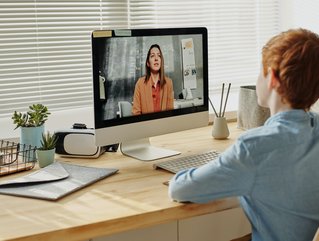UK school keeps students safe with AI remote security

Students at The Hollins secondary school in Accrington, Lancashire, are the first to benefit from a new software solution which allows the school to extend its strict Internet filters beyond the classroom, so they can be fully protected at home, or studying remotely. Whether they are using a smartphone, tablet, laptop or home PC, the students and their parents can be reassured that they are protected against exposure to inappropriate content, cyberattacks and malware threats.
The Hollins is the first school in the UK to install the networking software, designed by Cardiff-based iQuila. The main advantage of the connectivity technology is that it creates an environment for remote users that exactly duplicates the safe environment in school. In addition, iQuila can supportand manage thousands of connections simultaneously so students have an uninterrupted connection to the school’s online resources.
“We have a duty of care to protect our students and part of this is embracing technology that provides them with school-filtered Internet access at home,” said Steve Campbell, former Head Teacher at The Hollins and now CEO designate of the LET Education Trust. “The Internet is a major safeguarding issue, but by using iQuila we can fully encrypt any device that connects with our network through a simple software download. As well as protecting students, this will provide a high degree of reassurance to parents too.”
Another benefit to students at The Hollins, is that iQuila makes school software freely available to them at home. The school has organised this to reduce the financial burden on households and give all students the opportunity to learn remotely rather than being forced to complete work on the school site.
“The first set of students to start using iQuila at home have been our GCSE classes,” continued Mr Campbell. “It has been a difficult year for them, and they are already seeing the benefits of safer, more secure Internet access and the easy use of crucial software wherever they happen to be studying.”
Javed Younis, a parent of a year 11 pupil at The Hollins, said: “I have had concerns about my son and other children browsing online or being involved in group threads, and the iQuila software has given me much greater peace of mind. Previously, my son asked me to help him remove pop-up boxes when he was watching online gaming videos, and they were clearly inappropriate. No parent wants their child to be exposed to this, so I feel very positive that through iQuila, he is being safeguarded when is on the Internet at home, and he completely understands the reason for downloading iQuila and keeping safe.”
iQuila becomes active on any device as soon as the user logs-in to ensure immediate protection. While it can be used on school-owned and personal devices, students have the option to turn off the software on their own devices at home.
Developed in the UK, iQuila is the world’s first ‘full’ Layer 2 software defined network which means that it provides a layer of security, performance, reliability and transparency that is not found in layer 3-type virtual private networks. The Virtual Extended Network in the solution uses AI to learn about the type of data traffic that appears on the remote connections and their journey into the office/school network. It optimises connectivity by prioritising certain data streams and filtering out duplicate data streams, common in the home, among other things.
As well as providing a connection that does not drop, even during high-speed travel or in areas of poor broadband, iQuila offers high level encryption and secures the device itself for maximum protection. It is generally used by businesses and organisations to connect multiple sites and remote workers, and this is the first time it has been used by a school in this way.
David Sweet, CEO of iQuila, said: “Being able to extend the safety blanket of school-filtered Internet to students at home is something we’ve been passionate about for a long time. We recognised the
potential our technology had for changing the face of learning at home many years ago and it’s been a pleasure working with a forward-thinking, progressive school like The Hollins to make it a reality for thousands of students. We know the difference it is already making to so many young people and teaching staff, and we look forward to rolling it out to many more schools in 2022.”
Steve Campbell also added “the formation of the new LET Education Trust will allow us to share this exciting development with all schools within the Trust, keeping our pupils safe while using the Internet or studying remotely.”






